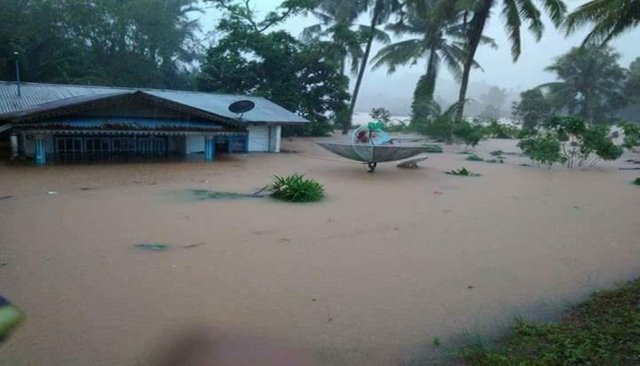
It can not be denied, flood disaster can happen anytime and anywhere. Throughout the period between 1900 and 2015, severe floods were frequent in various parts of the world, especially continental Asia.
Launched from the WorldAtlas.com page on Monday (5/2/2018), major floods often affect the local economy, namely in the form of losses due to damage and economic activity hampered.
No half-hearted, losses caused by floods can reach billions, even trillions of rupiah, depending on where the location occurred.
If floods hit an industrial area, as happened in Thailand in 2011 ago, then the economic losses could be many-fold, and even have an impact on the national economy.
Flood if not always caused by heavy rain, but also some other factors, such as natural disasters for example.
Here are the four greatest floods ever seen in the modern era.
1. Thailand Flood (2011) - Losses Rp 540 trillion
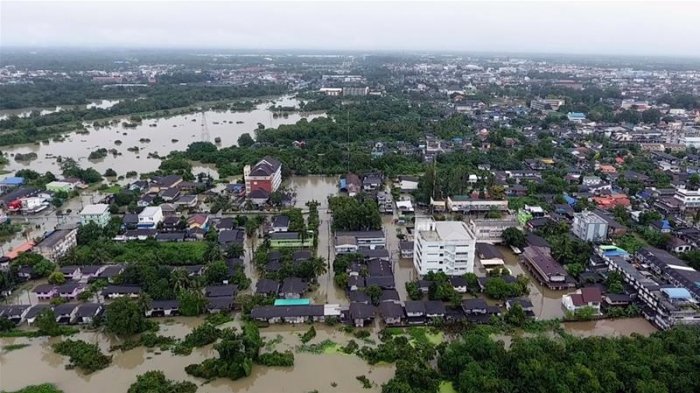
The flood disaster caused by heavy rains for days resulted in 427 casualties, mainly in the central and southern parts of Thailand.
According to the United Nations Framework Convention on Climate Change (UNFCCC), major floods in Thailand are due to higher rainfall at the turn of 2010 to 2011. It was 2,700 millimeters, higher than the average of only 2,200 millimeters per year.
Losses caused by the massive floods are said to reach US $ 40 billion, or around Rp 540 trillion, and it takes almost a week to recede.
2. Yellow River Flood China (1980) - Losses Rp 405 Trillion
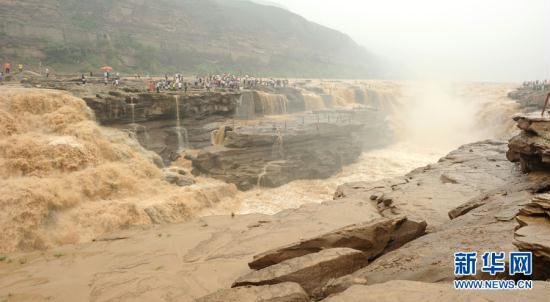
The Yellow River floods on July 1, 1980 caused an enormous flood disaster in some areas of central China.
Not only the city and the residential areas are flooded, but also the agricultural areas of rice and corn fields are experiencing the same thing. As a result, some food crops are damaged. Farmers were forced to harvest early, resulting in falling prices of food production in the market.
The flood is said to cause a loss of up to US $ 30 billion, or around Rp 405 trillion.
3. Guizhou Flood in China (2010) - Losses Rp 243 Trillion
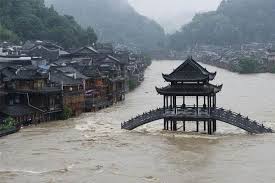.jpg)
Although the loss is lower than the previous floods in China, the floods caused the death toll of 392 dead and 232 reported missing.
The heavy casualties are caused by the flood character, which is the flood that contributes to landslides and heavy currents.
Losses caused by this flood are estimated at US $ 18 billion, or about Rp 243 trillion.
4. Flood of India and Pakistan (2014) - Loss Rp 216 Trillion
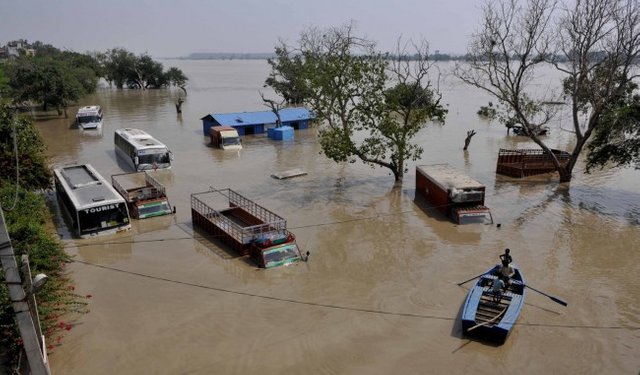
The overflowing Chenab River caused the "super flood," which destroyed houses and livestock in 600 villages in the Gujranwala and Sialkot regions in September 2014.
Floods that occurred during the week that killed 280 people in the Punjab region, namely the border area of both countries. The deaths of the victims were triggered by floods and landslides in the mountainous Kashmir region split between India and Pakistan.
The floods caused as many as 22,000 people in India were forced to flee their homes. The magnitude of the impact of the floods made the authorities of both countries call the disaster a cross-national disaster, and set aside tensions between the two countries for a rescue operation.
The flood disaster is said to cause losses of up to US $ 16 billion, or about Rp 216 trillion.
What about Jakarta?
.jpg)
Floods in Jakarta by World Atlas are not among the 10 largest losers in material quantities. Jakarta floods in 2015, losses reached Rp 1.5 trillion per day.
That number, obviously under the floods of some other countries.
Although not too bad, but there are problems with the city of Jakarta.
A prominent media journalist from the United States, The New York Times at the end of 2017 then explained about the potential sinking of Jakarta is increasing in the coming years.
"It's weird, from year to year, sea water is getting closer to the mainland," said a resident of Jakarta to Michael Kimmelman, the TNYT journalist who wrote the article.
Climate change makes the water of Java Sea in the Jakarta area has increased. The extreme weather that hit the city that once was Batavia, further exacerbated the situation.
Flooding, Kimmelman said, became a chronic routine problem. Beginning in 2017 alone, the extreme water floods made Jakarta with a population of 30 million people, torn paralyzed on the move.
However, according to climatology expert Irvan Pulungan to TNYT, climate change is not the only problem.
Another problem is that large-scale development activities that do not pay attention to environmental impacts, lack of urban planning, lack of optimal sewerage, and large buildings that drown the soil lower than sea level are a complex, deeply rooted problem in Jakarta.
Very nice article you have there! But do not forget to cite your sources and credit your images when necessary
Downvoting a post can decrease pending rewards and make it less visible. Common reasons:
Submit